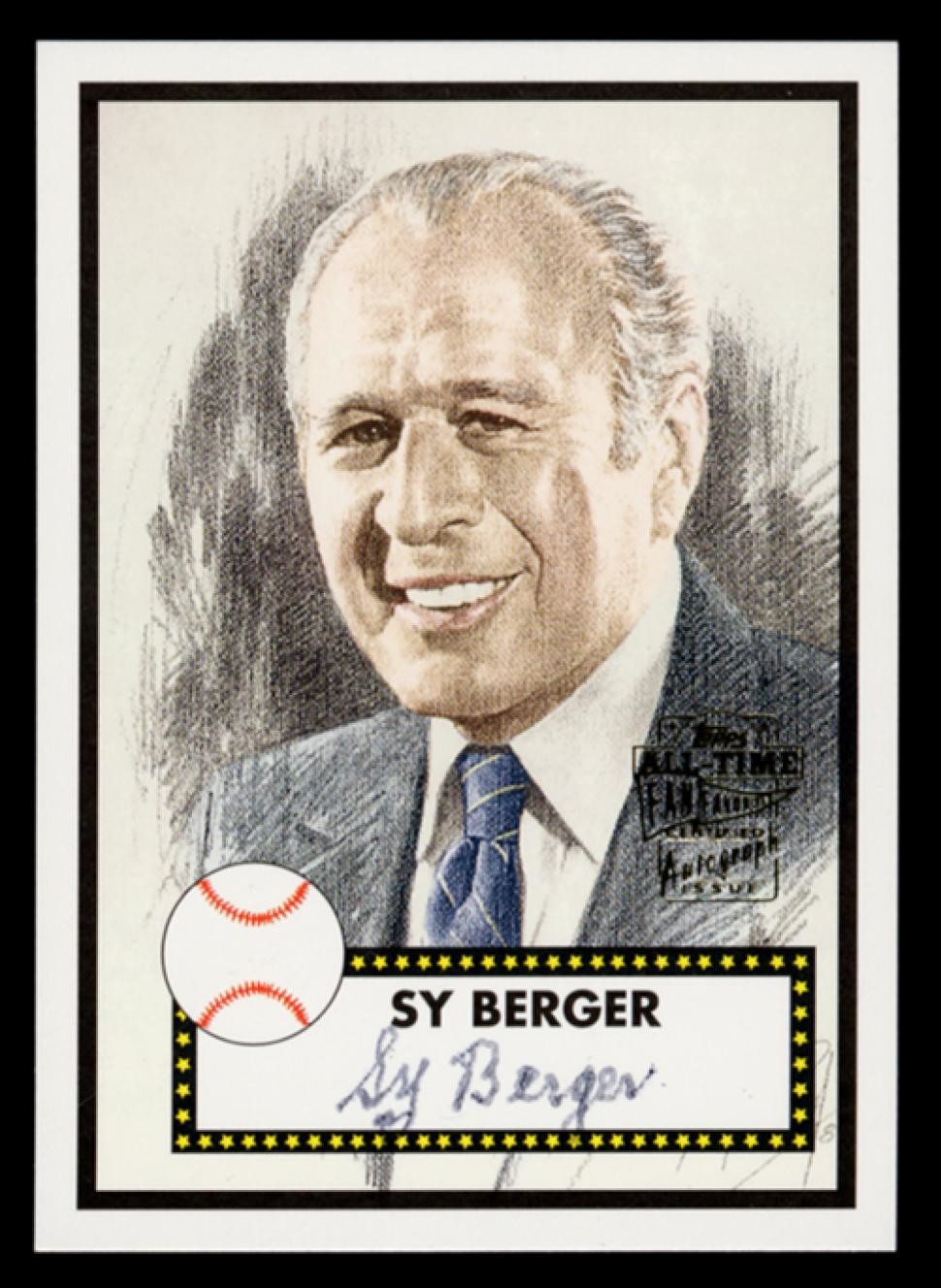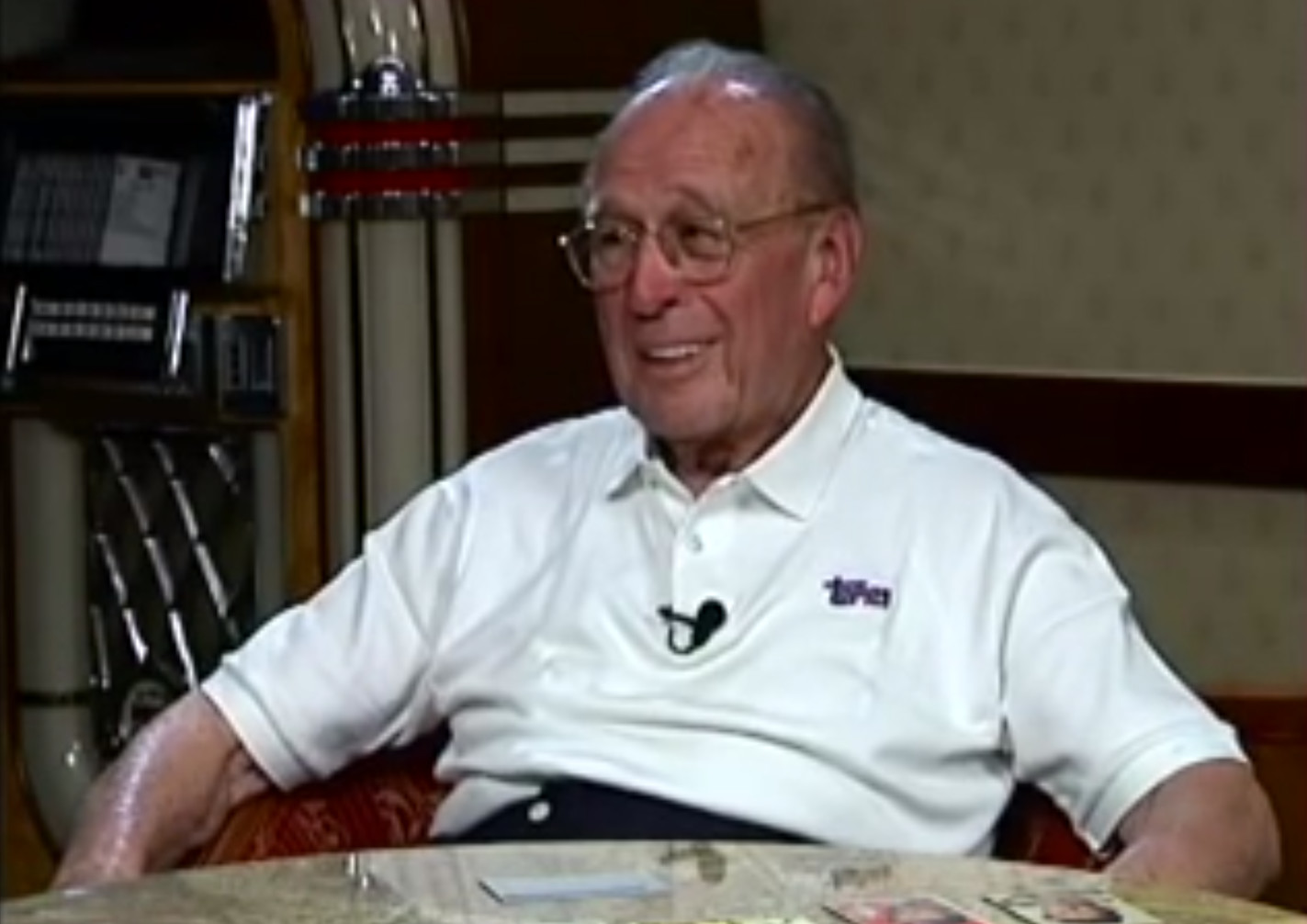‘So long old pal’
Father of the modern baseball card, Sy Berger, dead at 91
Longtime Rockville Centre resident Seymour Berger — Sy to his friends — died in his home on Dec. 14, of natural causes. He was 91.
Berger is credited with reinventing the Topps baseball card in the 1950s, turning it into the collectible that it is today. Sitting at the kitchen table in his former home in the Bronx, he sketched out the idea for the modern baseball card: a color picture of the player on the front, along with the team logo and the player’s signature, and the player’s vital statistics on the back of the card.
When Berger was working in the industry, things were much more hands-on: he talked to players individually, persuading them to give Topps the rights to make cards of them instead of its main competitor, Bowman.
“I was the Yankees PR guy — I go back to 1968 working in baseball,” said Marty Appel, a baseball historian and author of “Pinstripe Empire.” “And everyone working in baseball knew Sy. He was a guy who was known and liked by players, management and media.”
Berger was born on July 12, 1923, and grew up in New York City. When he was 17, a friend set him up on a blind date with a girl named Gloria Karps. When she got home from the date, she told a friend, “That’s the man I’m going to marry.”
The couple’s nuptials were delayed while Berger fought in World War II, serving in the Army Air Corps as a mechanic in the European Theater. They married soon after his return in 1946. The couple moved to Rockville Centre in 1954 and had lived in the same house ever since.
“He was such a great father,” said Berger’s daughter, Maxine Berger-Bienstock. “He was a very kind soul.”
Berger’s warm personality and honesty helped him win more contracts with ballplayers than his rivals, and the Topps line expanded. He was well known not only among the players, but also among their families.
In those days, players were paid in merchandise as well as cash. “They’d go to Sy anyway, and say, ‘Could you get me a deal on carpeting?’” Appel recalled. “So the families all knew him.”
Eventually, the baseball card business changed, and the days when Berger had to chase down individual players to get them to sign contracts ended. Instead, Topps made deals with Major League Baseball and the Players Association.

 47.0°,
Overcast
47.0°,
Overcast 







